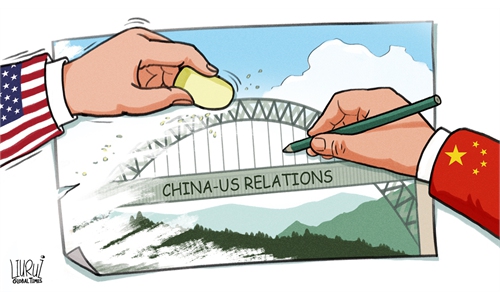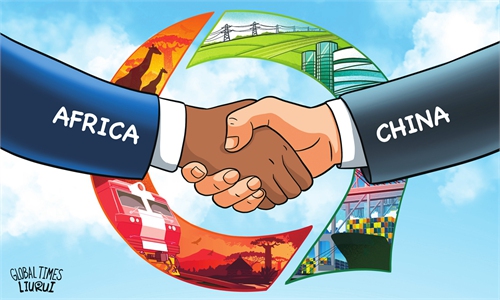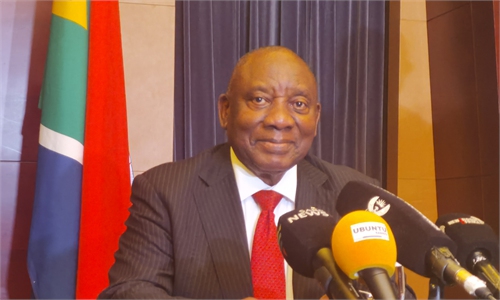
Illustration: Chen Xia/GT
Having sidelined the African continent during his tenure, President Joe Biden is now scrambling to create an African legacy as he approaches the end of his term. A last-minute trip to Angola was initially scheduled for October 13 but was postponed due to a devastating hurricane in the US state of Florida.
Biden previously managed to travel to Europe several times as well as to countries in the Middle East, Asia and Latin America. It speaks volumes about the continent and its people that he couldn't make the Angola trip, which would have been his first visit to Africa during his presidency. In contrast, President Xi Jinping has visited the African continent five times. President Xi has attended two Forum on China-Africa Cooperation (FOCAC) summits and chaired the Extraordinary China-Africa Summit on Solidarity Against COVID-19 as well as the China-Africa Leaders' Dialogue. Historically, for 30 years, Chinese foreign ministers have come to Africa for the first visit every year.
The Angola visit has now been rescheduled for the first week of December, during the final weeks of Biden's presidency. But there is little excitement around the trip, as many see it for what it is, a rivalry with China. As is the case with many other African countries, China is Angola's top trading partner. Many wonder why Biden has waited until the end of his term to visit Africa despite speaking sweet words in December 2022 during the US-Africa Leaders Summit where he addressed 49 African leaders.
Even more telling is that four months before the 2022 US-Africa Leaders Summit, the Biden administration released the "US Strategy Toward Sub-Saharan Africa" in August 2022. Surprisingly, this document is seen as the first step in a lengthy journey to transform US-Africa relations into strong partnerships with African agency as a guiding principle.
In the past, US ambassadors on the African continent struggled to define the official policy goals for their respective African countries, as these goals did not exist on paper. Many promises were made in that policy document regarding how the US would help elevate and harness Africa's role in solving global challenges, including climate change.
Now, the policy remains the same, as though Africa is still not a priority for the US government. Some say that the policy was a knee-jerk reaction in a failed bid to bring attention back to the US. These concerns resonate strongly.
Africa has received insufficient attention and resources, while successive US administrations have largely offered big promises backed by minimum action to a continent with nearly 1.5 billion people. Consequently, a trail of empty promises and rhetoric have increasingly weakened US-Africa diplomatic relations, derailing trade ties and military collaborations. For solutions to its pressing problems, Africa is firmly looking East. The China-proposed Belt and Road Initiative has already signed deals with 52 African nations.
There is no doubt that China and Africa are sparing no effort to build the China-Africa community with a shared future for mankind. Visits by Chinese leadership are not a recent occurrence. It was reported that between 2008 and 2018, China's top leaders, including the president, premier and foreign minister, made a total of 79 visits to 43 different African countries.
There is growing criticism that the Angola trip was merely a cosmetic afterthought. Some believe that Biden needs his inaugural Africa trip to serve as a last-ditch effort to stitch together an African legacy on his way out. History will show that Africa is not a priority for the US and there have been many opportunities to reshape US-Africa ties. The most recent visit to Africa by a US president was in 2015 when Barack Obama visited Kenya and Ethiopia. This trajectory paints a picture of a checkered past between the US and Africa.
Since 2000, China and Africa have been holding FOCAC every three years. It is no wonder that China is Africa's largest two-way trading partner and has already exceeded US-Africa trade by a factor of four. China is also the largest provider of foreign direct investment in Africa. The year 2022 was meant to be a defining moment in the chapter of US-Africa relations; however, all the promises made in what was intended to be a landmark Africa policy have amounted to grand words backed by miniscule actions. Biden's Angola trip, if it even occurs, will probably make no difference.
The author is a Kenya-based journalist. opinion@globaltimes.com.cn



